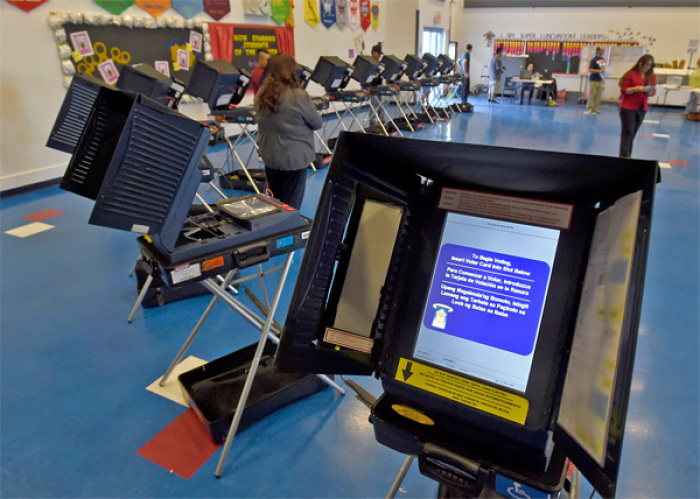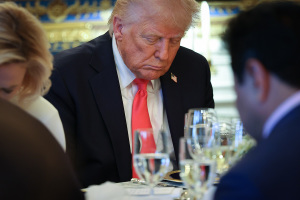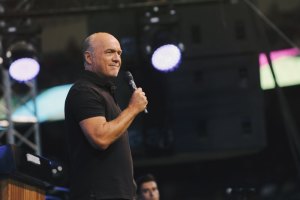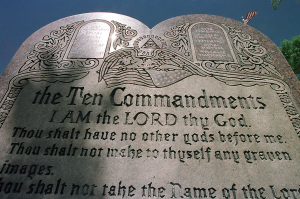Texans to vote on Prop 3: Religious freedom protection or threat to public health?

A proposed constitutional amendment that would restrict the government’s ability to place restrictions on worship services will appear on the ballot before Texas voters this Election Day.
Texans are set to weigh in on several constitutional amendments in the state’s upcoming general election, scheduled for Nov. 2. One proposed constitutional amendment, Proposition 3, would “prohibit this state or a political subdivision of this state from prohibiting or limiting religious services of religious organizations.”
In a statement, Jonathan Covey, director of policy for the conservative advocacy organization Texas Values, urged Texans to support the measure: “Proposition 3 is crucial and needs to pass to prevent future religious services and organizations from being shut down while bike shops and grocery stores are still open. Churches, places of worship and religious organizations must be protected. Proposition 3 will safeguard religious freedom with the highest protection offered by Texas law.”
Proposition 3 comes more than a year-and-a-half after the coronavirus pandemic first broke out in the United States. The beginning of the pandemic was accompanied by strict lockdowns implemented to stop the spread of the disease that, in many cases, restricted the ability of churches and houses of worship to meet in person while placing lighter constraints on comparable secular businesses.
The worship restrictions resulted in many court challenges and the U.S. Supreme Court ruled in Roman Catholic Diocese of Brooklyn v. Cuomo that “even in a pandemic, the Constitution cannot be put away and forgotten.” The majority opinion in the case concluded that restrictions “barring many from attending religious services … strike at the very heart of the First Amendment’s guarantee of religious liberty.”
Texas Values elaborated on the rationale behind Proposition 3 in a one-page summary. “In one Texas town, police officers circled a church parking lot while parishioners were having outdoor services. In two other cities, worshippers had to pursue legal action against the city government for unfair closure and treatment of churches during the pandemic.”
David Marcus, a representative of the El Paso chapter of Americans United for Separation of Church and State, expressed his opposition to Proposition 3 in an op-ed for El Paso Matters. Marcus concluded that the measure “threatens public health under the guise of religious freedom.”
“If it were to pass, Proposition 3 could have deadly consequences if the COVID-19 pandemic worsens or if we face a more contagious virus. If the state can’t temporarily limit gatherings, a crowded religious service could be a potential super-spreader of the virus, leading to other infections of unsuspecting members of the community,” he warned.
Marcus further contended that if Proposition 3 were to go into effect, “a fire marshal might not be able to ensure that a church complies with occupancy limits and emergency exit requirements.” He asserted that “under the U.S. and Texas Constitutions, the government can place limits on religious activities in emergency situations so long as such limitations are neutral and generally applicable or ‘narrowly tailored’ to serve a ‘compelling’ state interest.”
Earlier this year, the Republican-controlled Texas Legislature approved House Bill 1239, also known as the Freedom to Worship Act, which proclaims that “A government agency or public official may not issue an order that closes or has the effect of closing places of worship in this state or in a geographic area of this state.” The measure passed both chambers of the state Legislature with bipartisan support, with the House approving the bill by a vote of 122-22 and the Senate greenlighting it in a 28-3 vote.
Texas’ Republican Gov. Greg Abbott signed the Freedom to Worship Act into law in June. As with any other bill passed by the state Legislature, a subsequent Legislature can repeal it. Supporters of Proposition 3, including Texas Values, see the ballot measure as securing the Freedom to Worship Act “by preserving it in the Texas Constitution.”
On the other hand, Marcus believes that “a constitutional amendment is not necessary” because “federal and state laws already protect the right of houses of worship to hold religious services.” He described Proposition 3 as “cumbersome and time-consuming to undo — with catastrophic results a real possibility in the meantime.”
Ryan Foley is a reporter for The Christian Post. He can be reached at: ryan.foley@christianpost.com




























